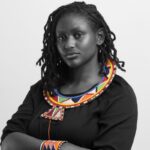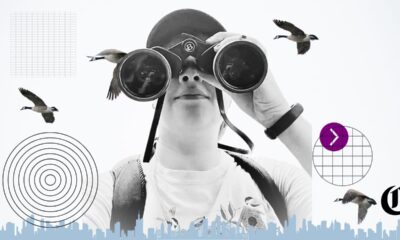Questions of the Day Program
Dr. Buguzi shares insights from communicating science in Tanzania’s native language of Kiswahili
In this segment, CivicSciTV’s Questions of the Day (QOTD) Program features Special Correspondent Stephanie Okeyo interviewing Dr. Syriacus Buguzi, a doctor, science journalist, and co-founder of Research Com. Dr. Buguzi discusses his digital initiative, MwanaSayansi, a Kiswahili science news portal aimed at increasing access to science information for Tanzanians. Passionate about raising the profile of health journalism, Dr. Buguzi focuses on making complex scientific information understandable and engaging for the public, bridging the gap between science and everyday life.
Dr. Buguzi emphasizes, “Making science accessible in native languages is crucial for fostering a scientifically informed society.”
For science communicators, Dr. Buguzi highlights the importance of translating scientific information into native languages to improve accessibility. He encourages journalists and content creators to utilize digital platforms to reach a wider audience and advises scientists to simplify complex scientific concepts to make them more understandable for the general public. Additionally, he recommends engaging with local communities to identify their specific informational needs and tailor content accordingly.
Dr. Buguzi has contributed to notable outlets such as The Citizen, Nature Africa, The Conversation Africa, SciDev.Net, Inter Press Service (IPS), GAVI, Lancet, and Wired UK.
Additional Readings (from Kago and Cisse, 2022)
Brock-Utne, B. (2004). “But English Is the Language of Science and Technology: The Language of Instruction in Africa, with a Special Look at Tanzania,” http://www.netreed.uio.no/articles/Papers_final/brock_utne.pdf
Prophet, B., and Dow, P. (1994). Mother Tongue Language and Concept Development in Science: A Botswana Case Study. Lang. Cult. curriculum 7 (3), 205–216. doi:10.1080/07908319409525178
Rollnick, M., and Rutherford, M. (1996). The Use of Mother Tongue and English in the Learning and Expression of Science Concepts: a Classroom‐based Study. Int. J. Sci. Edu. 18 (1), 91–103. doi:10.1080/0950069960180108
Stephanie Okeyo is a Microbiologist and Science Communicator. She is the founder of Under the Microscope. Some of her previous professional roles include Ambassador of Women in Science, East Africa and Representative to the United Nations office, Geneva at the Royal Academy of Science International Trust (RASIT). In 2019, she was listed as one of Under 30: Breaking Barriers Women in STEM and is a 2021 Zuri STEM category nominee. Stephanie is passionate about empowering young girls and being a voice for gender equality in Science and Technology.

-
 Audio Studio1 month ago
Audio Studio1 month ago“Reading it opened up a whole new world.” Kim Steele on building her company ‘Documentaries Don’t Work’
-
Civic Science Observer1 week ago
‘Science policy’ Google searches spiked in 2025. What does that mean?
-
Civic Science Observer1 month ago
Our developing civic science photojournalism experiment: Photos from 2025
-
Civic Science Observer1 month ago
Together again: Day 1 of the 2025 ASTC conference in black and white
Contact
Menu
Designed with WordPress
























